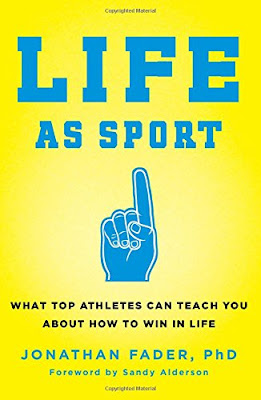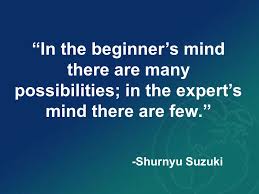What Top Atheletes Can Teach Us About How to Win the Game of Life
Distilled from the podcast and youtube video interview by Dr. Perdram Shojai, the urban monk:
If you have 41 minutes, you can search for the podcast or click on the youtube link below.
If you dont have time, here are the key transformative insights I got from listening to the podcast at least 5 times, and then finally getting my mind really involved by memorizing and visualizing what means most, to me and probably to you:
14 TRANSFORMATION INSIGHTS:
1. We are all competitors in the game of life. We all want to win. We can learn from top athletes. (But there is no map)
2. In many sports, it is binary. There is a winner and a loser. However, if you are competing with yourself, like getting a lower score in golf or a faster personal best in your run, then it doesnt have to be binary.
3. Regardless if its binary or competing with yourself, the best way at not winning is to learn from the “unwanted results.” Seek the learning always.
4. Accept. Observe. Be Mindful You will not always win or get your wanted result. When that happens, dont struggle. Dont go against the tide. Imagine quicksand or the rip tide. Acceptance is the best first step. If you dug yourself into a hole, digging faster doesnt help you.
5. Then shift with grace and gratitude. For bikers and surfers and drivers, the best recommendation is to steer where you want to go. Dont focus on what you dont want to happen.
6. Prepare or pre-program for adversity? Yes, develop a natural, portable easy to access routine like centering your breath. Practice it so that when adversity comes, you can easily use this to cope.
7. Pay it Forward. Expect Adversity and prepare for it. Traditional psychology is called upon when there is a problem. Sports psychology is used to prepare for the expected difficult moments before these come. Do regular preventive pro-active action. Floss. Declog, Delete. Take out the gunk like that in the fishtank. Put the pH stabilizer. Otherwise, the garbage will accumulate and the problem will get bigger. (An ounce of prevention is worth more than a pound of cure)
8. When helping another person change, use motivational interviewing. First step is to tell your interviewee that you know that it is difficult to change. Second, is to explain what’s in it for them. Even if you are the expert and you know exactly what they have to do to change, and then using this higher know-it-all or i’ve-been-thru-this pedestal to direct them on what to do doesnt work. and this is even if you are right Meet them where they are at and dont expect them to agree with you or even want to go where you have been.
9. Enjoy your time as a player. Someday, you will have to stop. So with life. Be grateful for the opportunity to have played at all.
10. The difference between thoughts and feelings. Feelings are uncontrollable, emotive, they just are. I feel sad. I feel lonely. Nothing you can do about the feeling coming out. Thoughts on the other hand can be challenged as to their rational basis. Is the thought really correct? If it is, then what behavior or action should you do next. The most common confusion comes when you mix feelings and thoughts, because then you lose control irrationally. So this is the most common disempowering thought/ feeling combo: I feel I cant do it. The disempowering thought is the monkey brain from your conscious self. (Refer to the Inner Game of Tennis about our 2 selves where the subconscious or unconscious mind is the superior self and knows exactly what must be done with no need of thoughts from Self 1- the conscious mind)
11. When you feel overwhelmed, thoughts wont help. Behaviors will. If you are on the free throw line for the game-decider, or on your second serve for match point, then thinking about anything wont help. Instead, use pre-programmed behavior that quiets the mind and allows you to just act without thinking. Your other, subconscious, superior self knows what it needs to do. Let it. So breath, say a mantra. Center. Think not.
12. This moment. Dr. Fader’s mantra to focus on the now and the present. Just this moment. Quiet the mind from past and future.
13. Keep learning. Keep looking. The best athletes in the world like Jordan or Curry are probably born with some talent already. But more than that, there is the iceberg theory. We dont see the hours of practice, or miles they have run to get to where they are at. Then, they have this I-have-to-find-the-key-orientationn of always seeking the solution and learning- trouble shooters or problem-solvers – accepting the present first and then looking for answers. Learn from Suzuki on life-long learning (so that we never grow old, we have that hunger and openness for new learnings from everyone we meet). Commit to learning…
14. As we grow in wisdom and start thinking of ourselves as experts, then we should not forget how small we are in this universe. Let’s always nourish and feed our beginner’s mind.
Think the insights were awesome? Find the 41 minutes to actually listen to the podcast or watch the youtube link below….
To learn more about Dr. Fader, visit his website:
http://jonathanfader.com/


